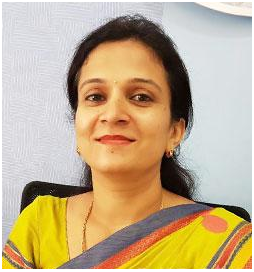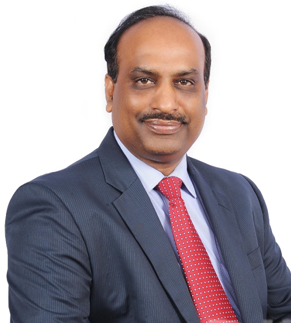ICSI, which stands for intracytoplasmic sperm injection, is an advanced technique used in conjunction with in vitro fertilization (IVF) to overcome certain male infertility issues. It involves the direct injection of a single sperm into the cytoplasm of an egg to facilitate fertilization. ICSI is typically recommended when there are concerns about sperm quality, quantity, or motility, which may hinder the ability of sperm to fertilize an egg on their own.
Here is an overview of the ICSI process:
Ovarian Stimulation and Egg Retrieval: Similar to the IVF process, the woman undergoes ovarian stimulation with fertility medications to promote the development of multiple mature eggs. When the eggs are ready, they are retrieved through a minor surgical procedure called egg retrieval.
Sperm Collection: On the same day as the egg retrieval, a semen sample is collected from the male partner or a sperm donor. If the male partner has a low sperm count or other issues affecting sperm quality, the sperm sample may be obtained through techniques such as testicular sperm extraction (TESE) or epididymal sperm aspiration (PESA/MESA).
Sperm Preparation: The collected semen sample undergoes a laboratory process known as sperm preparation. This involves separating the most active and healthy sperm from the semen and removing any debris or non-sperm cells. The prepared sperm is then ready for the ICSI procedure.
ICSI Procedure: Under a microscope, an embryologist selects a single, high-quality sperm using a fine glass needle called a micropipette. The selected sperm is immobilized and injected directly into the cytoplasm of an individual egg. This process is repeated for each mature egg intended for fertilization.
Embryo Development: After the ICSI procedure, the injected eggs are incubated in a laboratory. The fertilized eggs, now called embryos, are monitored for cell division and development over the following days.
Embryo Transfer: Typically, three to five days after the egg retrieval and fertilization, the resulting embryos are evaluated, and the highest-quality embryos are selected for transfer. The chosen embryos are transferred into the woman’s uterus through a thin catheter, guided by ultrasound imaging.
Luteal Phase Support and Pregnancy Testing: After the embryo transfer, the woman may receive hormonal support, such as progesterone, to aid in the implantation and early development of the embryos. Approximately two weeks after the embryo transfer, a pregnancy test is conducted to determine if the procedure was successful.
ICSI has significantly improved the chances of fertilization and pregnancy for couples dealing with male infertility factors. It allows for the direct injection of a single sperm into an egg, bypassing potential obstacles that may prevent natural fertilization. However, it’s important to note that ICSI does not guarantee success, and the overall success rates depend on various factors, including the woman’s age, egg quality, and the expertise of the fertility clinic and embryologists.
It’s advisable to consult with a fertility specialist or reproductive endocrinologist to discuss individual fertility factors, assess the need for ICSI, and understand the potential success rates and risks associated with the procedure based on your specific circumstances.

MBBS, MD - Obstetrics & Gynaecology
Speciality : Infertility Specialist, Gynecologist, Obstetrician Experience : 22+ Years Experience Languages spoken : English, Kannada ,Hindi , Marathi

MBBS, MD - Obstetrics & Gynaecology

MS - General Surgery, MCh - Urology/Genito-Urinary Surgery, DNB - Urology/Genito - Urinary Surgery, MNAMS - General Surgery, FRCS - General Surgery, MBBS
Speciality : Infertility Specialist, Gynecologist, Obstetrician Experience : 22+ Years Experience Languages spoken : English, Kannada ,Hindi , Marathi

MS - General Surgery, MCh - Urology/Genito-Urinary Surgery, DNB - Urology/Genito - Urinary Surgery, MNAMS - General Surgery, FRCS - General Surgery, MBBS
EXCELLENT
Before your first appointment, one of our clinical care coordinators will call you to discuss your case and review what appointments to expect. The clinical care coordinator will make sure all appointments are arranged in a timely fashion. Each of our patients is unique and treated individually, and the schedule of doctors you see will be tailored specifically to your needs. The doctors will discuss your care options with you and answer any questions that you may have regarding your diagnosis and management.
We are dedicated to helping pregnant women and their families after a significant birth defect or genetic condition has been detected. Specialists from both obstetrics and pediatrics work together as a team to determine the best way to care for you and your unborn baby, both during and after your pregnancy.
Whenever possible, we create an integrated appointment plan, so that you can meet with the multiple subspecialists involved in your case. Some patients come here for a second opinion and go back to their obstetrician. Other patients transfer their care to Columbia as their delivery date approaches to make sure their baby immediately receives the necessary specialized pediatric care after birth.
Get All Your Queries Answered By Our Specialist
We are leading doctors in gynecology and urology fell free to take and appointment with us.